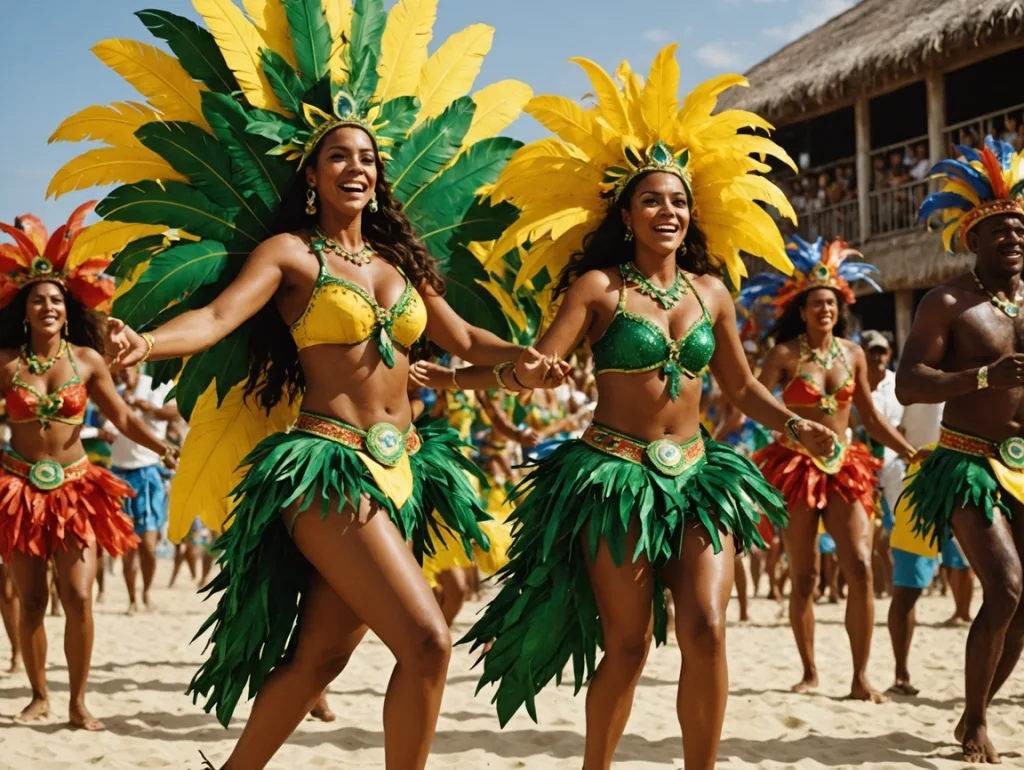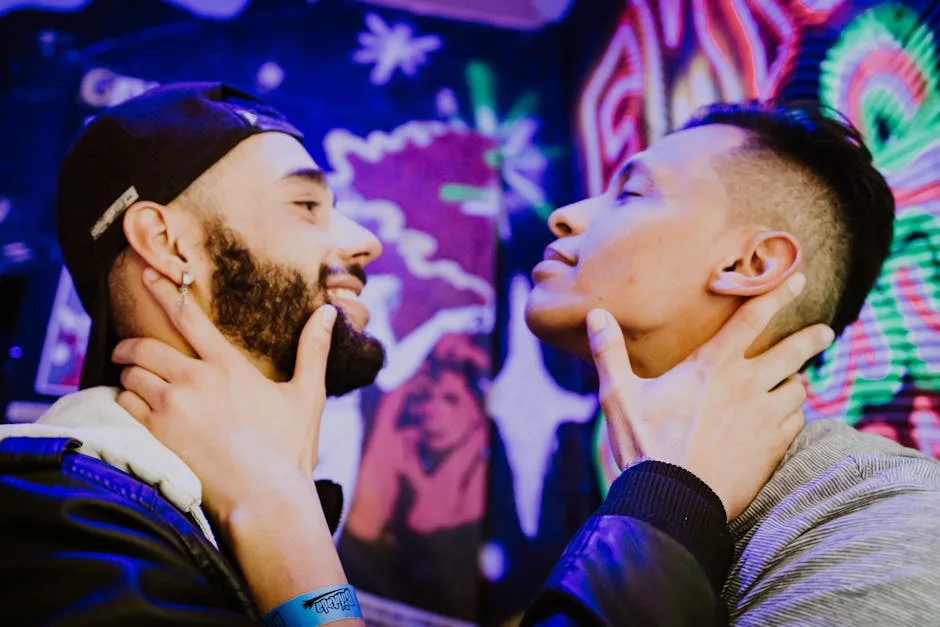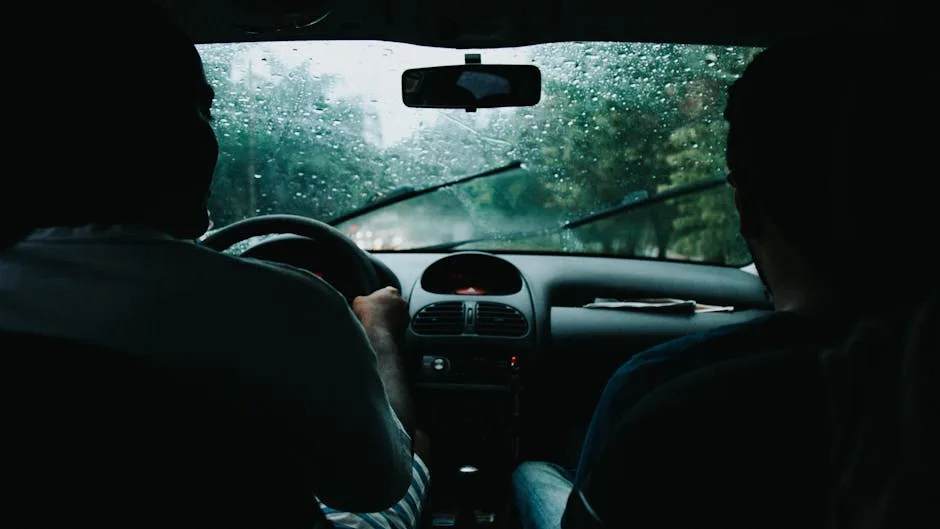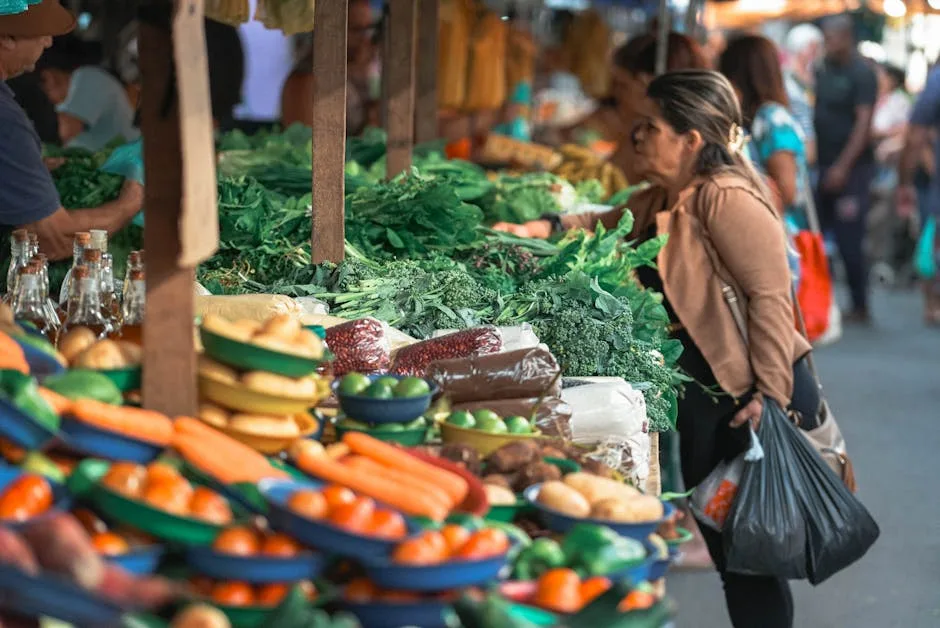Traveling through Brazil is a transformative experience, but did you know you can count on free health services throughout your entire stay? That’s right! The country offers public medical care at no cost to foreign tourists, ensuring that your Brazilian adventure is not only unforgettable but also safe and worry-free.
Imagine being able to explore the paradisiacal beaches of Fernando de Noronha, venture through the Amazon, or marvel at Iguazu Falls knowing that if you need medical assistance, it will be available 24 hours a day, free of charge. This is one of the many advantages that make Brazil an even more attractive destination for travelers from around the world.
Brazilian Healthcare System: A Safety Net for Tourists
Brazil’s Unified Health System (SUS) is recognized worldwide for its comprehensiveness and accessibility. For you, as an international tourist, this means an extra layer of security during your journey through the national territory.
SAMU: Your 24-Hour Guardian Angel
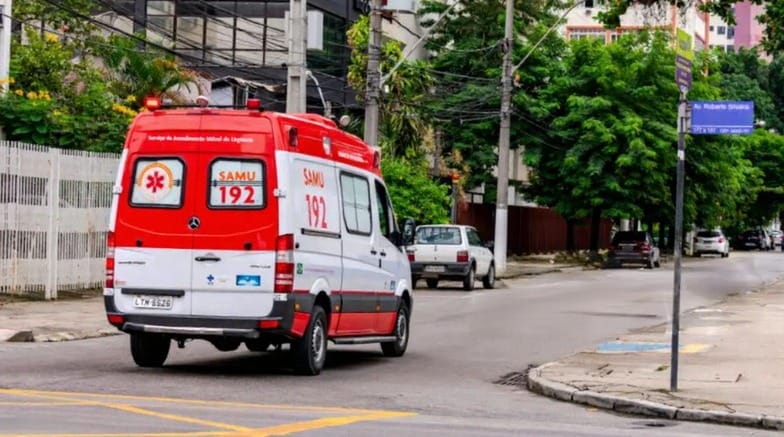
The Mobile Emergency Service (SAMU) is your main ally in emergency situations. By calling 192, you’ll have immediate access to:
Emergency medical care: Qualified professionals are ready to handle everything from minor accidents to more complex situations.
Specialized transportation: Ambulances equipped with cutting-edge technology to ensure the best care during transport.
Medical guidance: Often, simple telephone guidance can resolve your doubt or provide reassurance about minor symptoms.
Multilingual communication: In popular tourist destinations, it’s common to find professionals who speak English and Spanish.
The most impressive thing is that this service operates throughout the national territory, from major metropolises to remote Amazon communities. No matter where your adventure takes you, SAMU will be there for you.
Hospitals and Health Units
In addition to emergency care, you can seek Basic Health Units (UBS) for preventive consultations or treatment of less urgent conditions. These units are spread throughout the country and offer everything from basic medical consultations to specialized procedures.
In popular tourist destinations like Rio de Janeiro, São Paulo, Salvador, and Florianópolis, many hospitals have departments specialized in serving foreign tourists, with professionals trained to handle different languages and cultures.
Essential Health Tips for Tourists in Brazil
Understanding the particularities of Brazil’s tropical climate and preparing adequately will make all the difference in the quality of your trip. Small preventive measures can avoid inconveniences and ensure you enjoy every moment of your Brazilian experience.
Hydration: Your Number One Priority
Brazil is a predominantly tropical country, with high temperatures and humidity during much of the year. Staying adequately hydrated is not just a recommendation; it’s a fundamental necessity for your health and well-being.
Consume at least 2-3 liters of water daily, especially if you’re visiting destinations like:
- Northeast Brazil (Fortaleza, Recife, Salvador)
- Pantanal during dry season
- Amazon at any time of year
- Rio de Janeiro beaches in summer
Always carrying a reusable water bottle is a smart and sustainable practice. Tap water is potable in most Brazilian cities, but if you prefer, mineral water is widely available at any establishment.
Smart Clothing for Tropical Climate
Choosing the right clothes can make the difference between a comfortable and uncomfortable experience during your trip through Brazil.
Natural fabrics like cotton and linen are your best friends in tropical heat. They allow better air circulation and sweat absorption, keeping your body cooler.
Light colors reflect heat from the sun, while dark colors absorb it. Opt for neutral and light tones, especially for outdoor activities.
Breathable footwear is essential. Quality sandals, well-ventilated sneakers, or fabric shoes will be much more comfortable than synthetic materials that don’t allow foot breathing.
Sun Protection: Your Shield Against Tropical Sun
The Brazilian sun can be particularly intense, especially in regions close to the Equator. Adequate protection is not a matter of vanity but of health.
SPF 30 or higher sunscreen should be applied generously and reapplied every 2 hours, especially after swimming or excessive sweating. Don’t forget frequently neglected areas like ears, feet, and neck.
Protective accessories make all the difference:
- Wide-brimmed hats protect face and neck
- UV-protection sunglasses preserve your eyes
- UV shirts for prolonged aquatic activities
Strategic Hours for Outdoor Activities
The period between 10 AM and 4 PM concentrates the highest intensity of ultraviolet radiation. During these hours, seek activities in covered locations or with abundant shade.
Take advantage of early mornings (6 AM to 9 AM) for walks, trails, and more intense activities. Late afternoon (after 4 PM) is also ideal for outdoor tours, plus offers spectacular sunsets.
Vaccination: Smart Protection for Your Adventure

Although not mandatory for entry into the country, preventive vaccination may be recommended depending on the destinations you plan to visit during your stay in Brazil.
Yellow Fever: When to Worry
Yellow fever vaccination is recommended for visitors planning to explore:
Amazon Region: Including states like Amazonas, Pará, Acre, Rondônia, and Roraima.
Pantanal: Especially during wildlife observation expeditions.
Cerrado: Regions of Goiás, Mato Grosso, and parts of Minas Gerais.
Preserved Atlantic Forest: Some environmental reserve areas.
The vaccine should be taken at least 10 days before travel to ensure adequate immunization. It’s valid for life after the first dose, so you’ll be protected for future adventures.
Other Recommended Vaccines
Depending on your vaccination history and specific destinations, your doctor may recommend updating vaccines such as:
- Hepatitis A and B
- Tetanus and diphtheria
- MMR (measles, mumps, rubella)
- Meningococcal meningitis
Pre-Travel Medical Consultation
Scheduling a medical consultation 4-6 weeks before travel is a smart practice. The professional can evaluate your specific itinerary, health history, and recommend personalized preventive measures.
COVID-19: Freedom to Travel
Excellent news for international tourists: Brazil has removed all COVID-19-related restrictions for entry into the country. You don’t need to present:
- Negative COVID-19 test
- Vaccination certificate
- Mandatory quarantine
- Additional pandemic-related documentation
This means you can focus completely on planning your Brazilian adventure without worrying about additional health bureaucracy.
Voluntary Protection Measures
Although not mandatory, some measures can still be adopted voluntarily:
- Use of masks in very crowded enclosed environments
- Frequent hand hygiene
- Maintaining distance in crowds when possible
Travel Insurance: An Extra Layer of Peace of Mind
Even with free access to Brazilian health services, contracting international travel insurance offers additional advantages:
Extended Coverage
Medical repatriation: In extreme cases, coverage for return to country of origin with medical accompaniment.
Specialized medications: Access to specific medications that may not be available in the public system.
Private clinic care: Option for treatment in private hospitals with shorter waiting times.
Dental coverage: Emergency dental treatment.
24-Hour Assistance in Multiple Languages
International insurance generally offers call centers that operate 24 hours in your native language, facilitating communication in stressful moments.
Pharmacies and Medications: Easy Access Throughout the Country
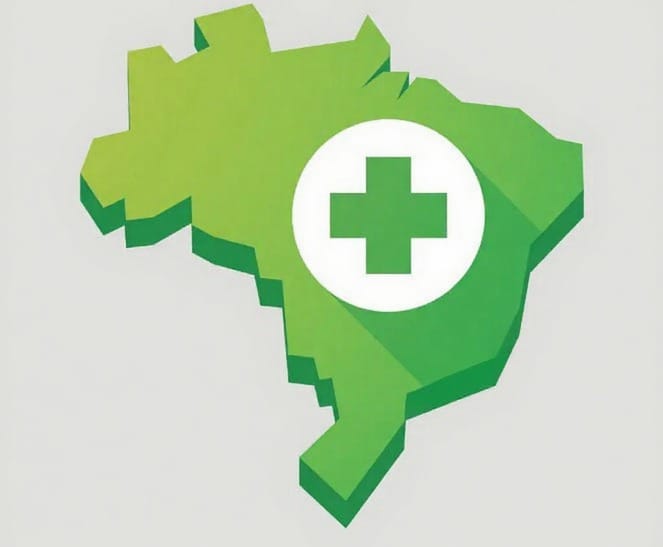
Brazil has a robust network of pharmacies, many operating 24 hours in major cities. Basic medications are widely available, many without prescription requirements.
Common Available Medications
Pain relievers and anti-inflammatories: Paracetamol, ibuprofen, aspirin are easily available.
Antihistamines: For insect bites or mild allergic reactions.
Gastrointestinal medications: For common digestive problems during travel.
Repellents: Variety of products against mosquitoes and other insects.
Controlled Medications
If you regularly use controlled medications, bring sufficient quantity for the entire trip, along with medical prescription (preferably translated). Some medications may have import restrictions.
Special Care by Region
Each Brazilian region has particularities that deserve special attention from conscious tourists.
Amazon: Preparation for Wild Adventure
Strong repellent: The Amazon houses various types of insects. DEET-based repellents are more effective.
Protective clothing: Long-sleeved shirts and long pants during forest activities.
Appropriate footwear: Waterproof boots for walks on wet terrain.
Water purification: In remote communities, consider water purification tablets.
Northeast: Sun and Sea with Safety
Intensified sun protection: Northeast sun is particularly strong due to proximity to the Equator.
Jellyfish caution: On some beaches, these animals can cause burns. Get local information.
Constant hydration: The dry heat of the backlands or coastal humidity requires frequent hydration.
South: Preparation for Climate Variations
Layered clothing: Weather can vary drastically during the day.
Rain protection: Especially during winter (June-September).
Altitude care: In mountainous regions, altitude changes can affect some people.
Safe Food: Savoring Brazil with Peace of Mind

Brazilian cuisine is one of the country’s great attractions, but some precautions can prevent gastrointestinal problems.
Choosing Establishments
Busy restaurants: High turnover usually indicates fresh food.
Observe hygiene: Clean establishments with employees following good practices.
Well-cooked food: Especially important for meat and seafood.
Water and Beverages
Bottled water: When in doubt, opt for sealed mineral water.
Ice: In reliable establishments, ice is generally made with treated water.
Washed fruits: Fruits you peel yourself (banana, orange) are safer.
Medical Emergencies: Useful Numbers
Besides SAMU (192), other numbers can be useful:
Fire Department: 193 (also handle medical emergencies)
Police: 190 (in cases of accidents or situations requiring security)
Civil Defense: 199 (emergencies related to natural disasters)
Medical Tourism Information Centers
Many tourist cities have information centers that can guide about local health services:
- Location of hospitals and pharmacies
- Doctors who speak foreign languages
- Emergency procedures
- Travel insurance information
Technology in Your Favor
Useful apps for medical emergencies in Brazil:
SUS Digital: Information about nearby health units
Translation apps: For communication with healthcare professionals
Offline maps: To locate hospitals without internet connection
First aid apps: Basic guidance for emergency situations
Prevention: The Best Medicine
Remember that the best way to deal with health problems is to prevent them:
Pre-Travel Check-up
Performing basic exams before travel can identify conditions that need attention during your stay in Brazil.
Personal First Aid Kit
Assemble a basic kit with:
- Adhesive bandages
- Usual pain relievers
- Thermometer
- Personal medications
- Repellent and sunscreen
Basic Portuguese Medical Knowledge
Learning some basic health-related words can be very useful:
- “Ajuda” (Help)
- “Médico” (Doctor)
- “Hospital” (Hospital)
- “Dor” (Pain)
- “Emergência” (Emergency)
Your Health, Our Priority
Traveling through Brazil with knowledge about available health services transforms your experience from good to exceptional. Knowing there’s a robust network of free medical protection, combined with smart preventive care, allows you to focus on what really matters: creating unforgettable memories.
Brazil not only offers stunning landscapes, rich culture, and legendary hospitality but also ensures you have access to quality medical assistance whenever needed. This makes the country an even more attractive destination for conscious travelers who value both adventure and safety.
Prepare adequately, stay hydrated, protect yourself from the sun, and above all, enjoy every moment of your Brazilian journey. With this information in hand, you’re ready to explore all the wonders Brazil has to offer, with the peace of mind of knowing your health and well-being are protected.
Your Brazilian adventure will be not only safe but also transformative. The country is ready to welcome you with open arms, caring for you as we care for our own family. Welcome to Brazil!


